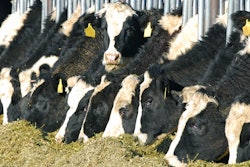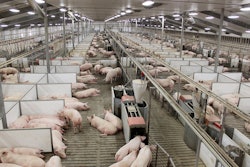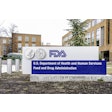
Leaders with the National Pork Producers Council (NPPC) believe the best time to get a farm bill passed is before the 2024 election takes place, or at minimum, before newly-elected officials are sworn into office.
The House Agriculture Committee recently approved its draft of the farm bill, but it has not yet moved to the full House, nor has any version of a Senate farm bill been advanced. Speaking among a panel of NPPC officers and staff members at World Pork Expo on June 5 in Des Moines, Iowa, NPPC CEO Chad Humphries said he was very pleased with that earliest draft.
“As we look at the farm bill that just passed out of the House Ag Committee, I’m incredibly happy with what GT (House Agriculture Committee Chairman Glenn Thompson) has worked on and put together in a bipartisan fashion. We had folks from both parties, having conversations and engaging there,” said Humphries.
Humphries specifically mentioned the allocation of $233 million for foreign animal disease prevention and preparedness, as the U.S. continues to face the threat of African swine fever (ASF) and foot-and-mouth disease (FMD).
He said those involved in the process have shown a “phenomenal understanding of what our industry needs, what the livestock industry needs and what all of agriculture needs,” and that he looks forward to continued dialogue with members of both the House and the Senate to get a farm bill sent onto the president’s desk.
“I’ll give a shout out to both parties and folks in both chambers. They understood and heard the needs of the industry,” Humphries said, whether that related to disease, California’s Proposition 12 law or international trade.
The right people, place and time
Chase Adams, NPPC assistant vice president of domestic policy, stressed the importance of “getting a farm bill done right.”
And like Humphries, Adams has been impressed with those involved in the drafting of the House Agriculture Committee draft, yet he is also aware that the people in power in Washington could be very different after the election.
“There’s a lot of talk about what the 119th Congress might look like, who’s going to be in the White House, and what the policies are going to be,” said Adams. “As I look forward, I have no idea.”
He stressed the importance of engaging with House and Senate members to keep the farm bill on track.
“This is an opportunity. We’ve got the right people in the right place at the right time, and for this industry facing challenges like African swine fever and Prop 12, these are challenges that hit us from all sides. This is the opportunity to address these issues. We’ve got to keep the momentum going, and we’ve got to keep the foot on the gas pedal … and make sure that we get this done because our producers deserve it. Our producers need it, and this is the time to get it done.”
















